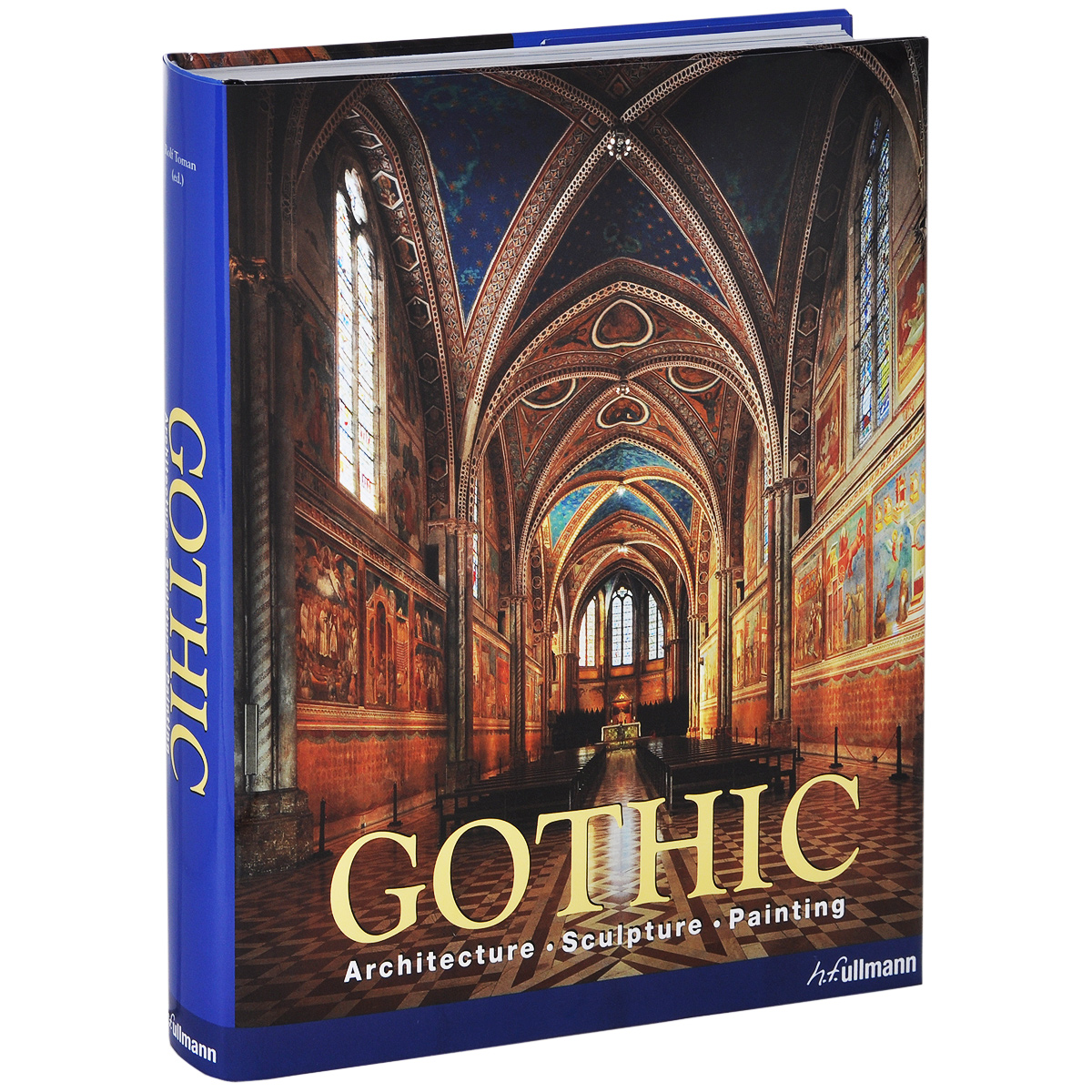Gothic art originated around 1140 in the Ile-de-France. Initially confined to the cathedrals and the most important abbeys of this region, it was soon to be regarded as a model for the rest of France and finally for Europe as a whole. The new style was not solely confined to the sacral domain, but rather increasingly invaded the secular and private spheres. Gothic is the first art-historical epoch from which art works of all genres have survived. Prominent among these remarkable works are the numer-ous richly-varied cathedrals, the abbeys and town churches with their sequences of sculptures, colorful windows, wall paintings, gold work and book illuminations. Alongside these, the diverse town sites, the castles and palaces with their elaborate and artistic furnishings, continue to amaze the modern viewer. The present volume describes the development of Gothic in all its diversity. Beginning with the initial flourishing of Gothic architecture in France, the book traces its early reception in neighboring countries. Individual essays are devoted to the specific formal development of Gothic architecture in England, the "German-speaking countries," Italy, Spain, Portugal, northern and eastern Europe as well as texts on late Gothic architecture in France and the Netherlands. The history of Gothic sculpture and painting with its changing pictorial themes and representational forms is also presented with reference to specific countries. Separate contributions on stained glass and gold work and individual studies devoted to special themes - to the Cathar heresy, to the Papal Palace in Avignon, to urban development, to technical knowledge - complete the period"s overview. This book"s many illustrations match the wide subject range of the Gothic period; approximately two-thirds of the 780 illustrations were especially photographed for this volume. The various art- historical contributions were written exclusively by experts. Это и многое другое вы найдете в книге Gothic: Architecture. Sculpture. Painting
Gothic: Architecture. Sculpture. Painting
Подробная информация о книге «Gothic: Architecture. Sculpture. Painting ». Сайт не предоставляет возможности читать онлайн или скачать бесплатно книгу «Gothic: Architecture. Sculpture. Painting »
